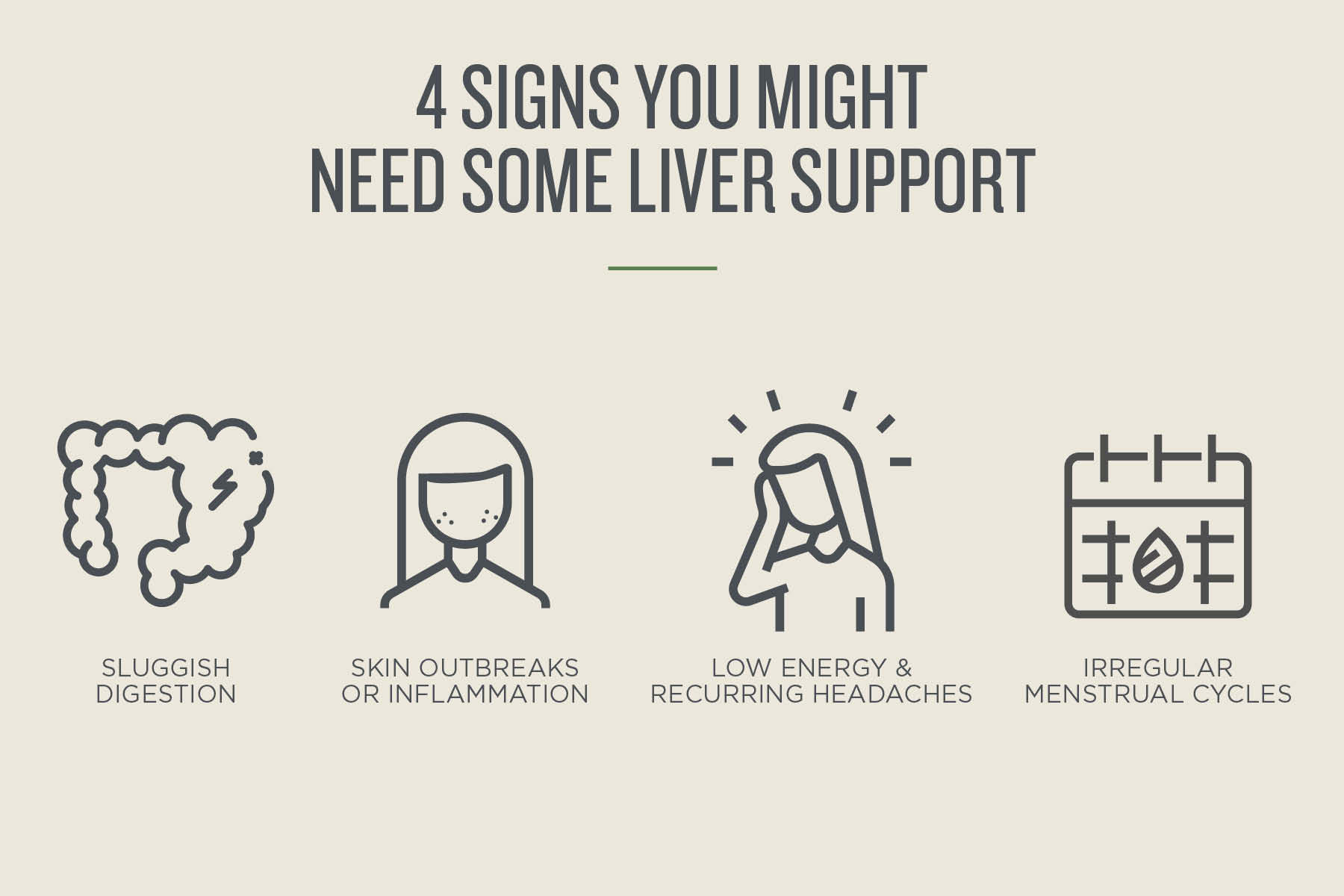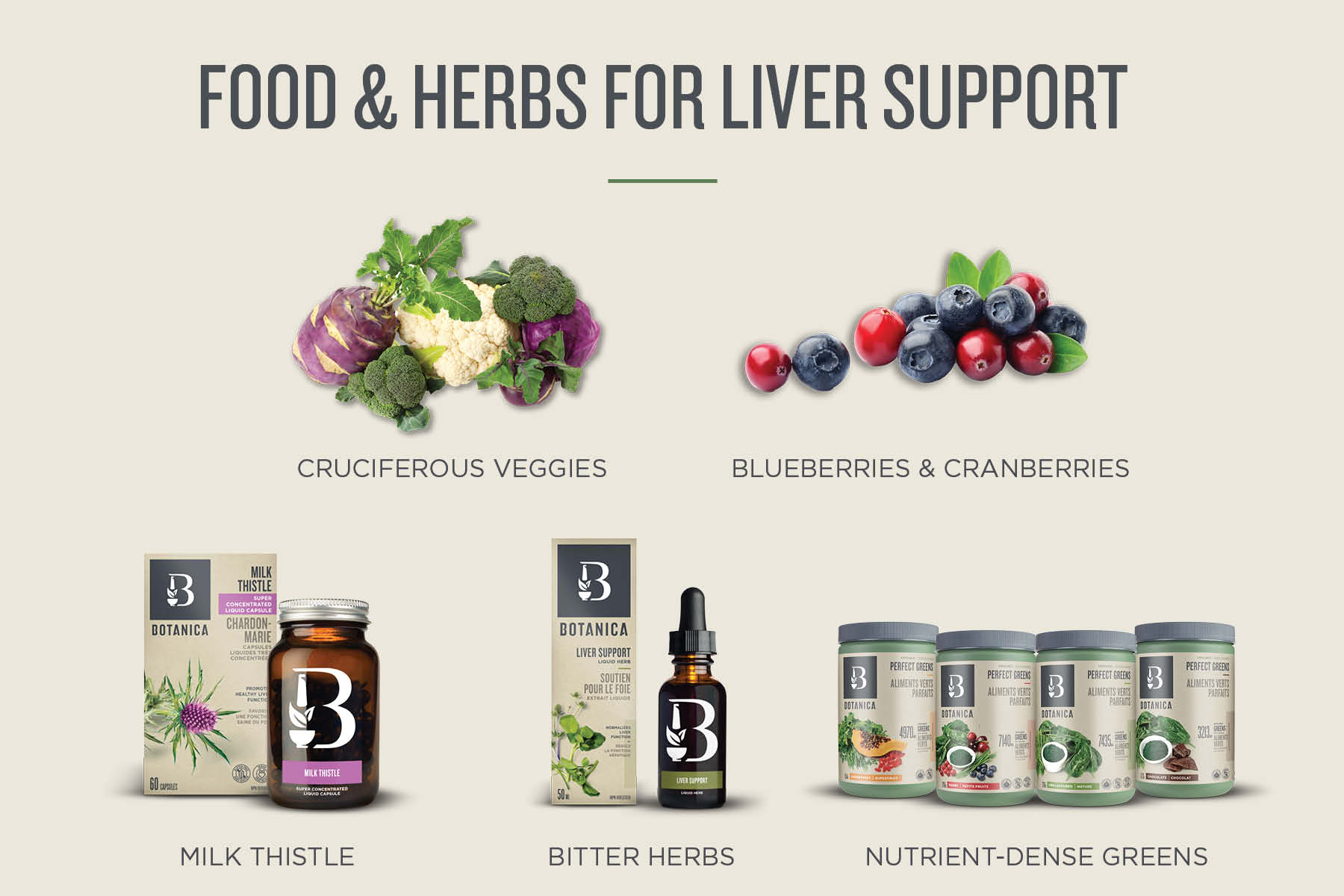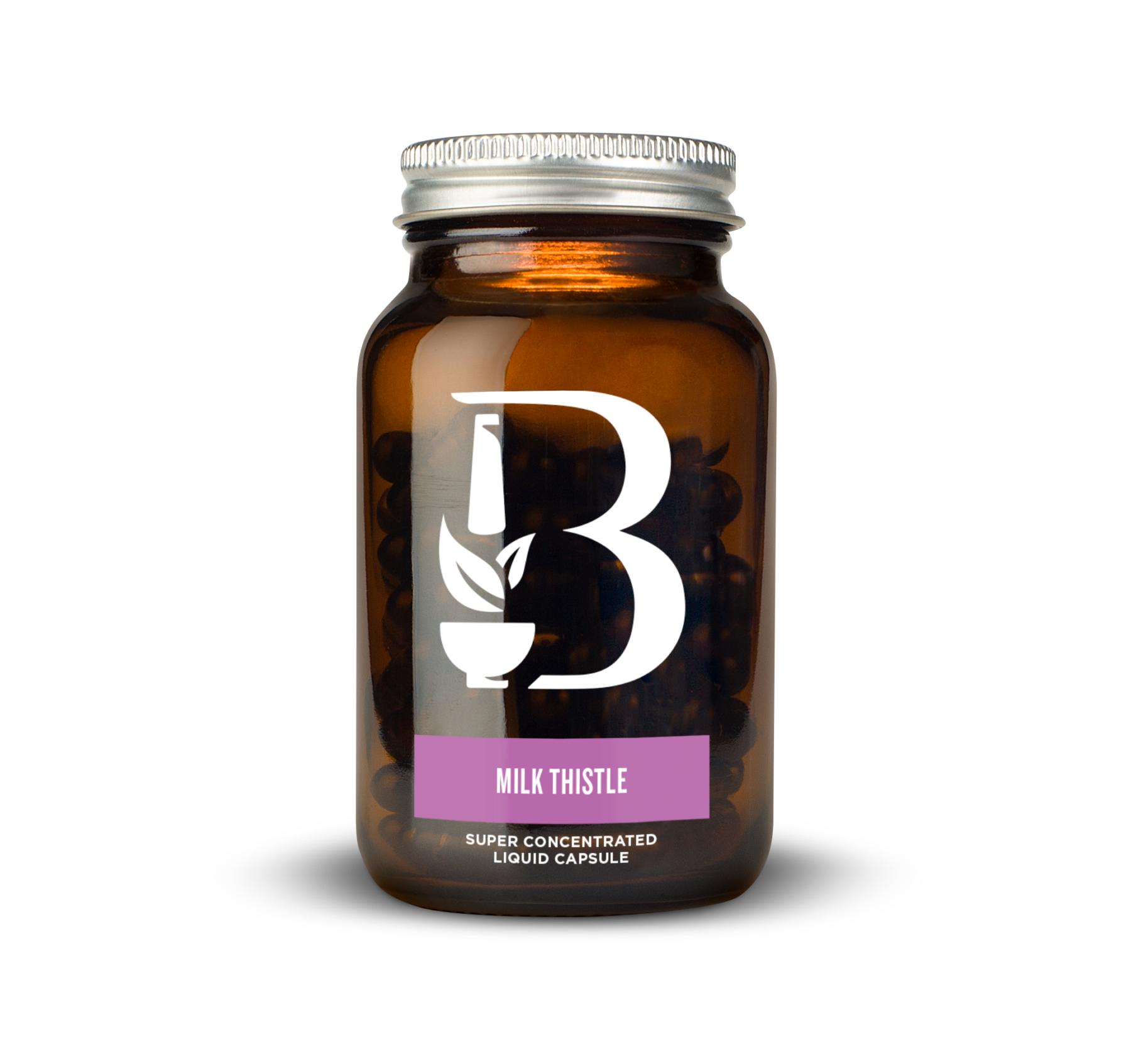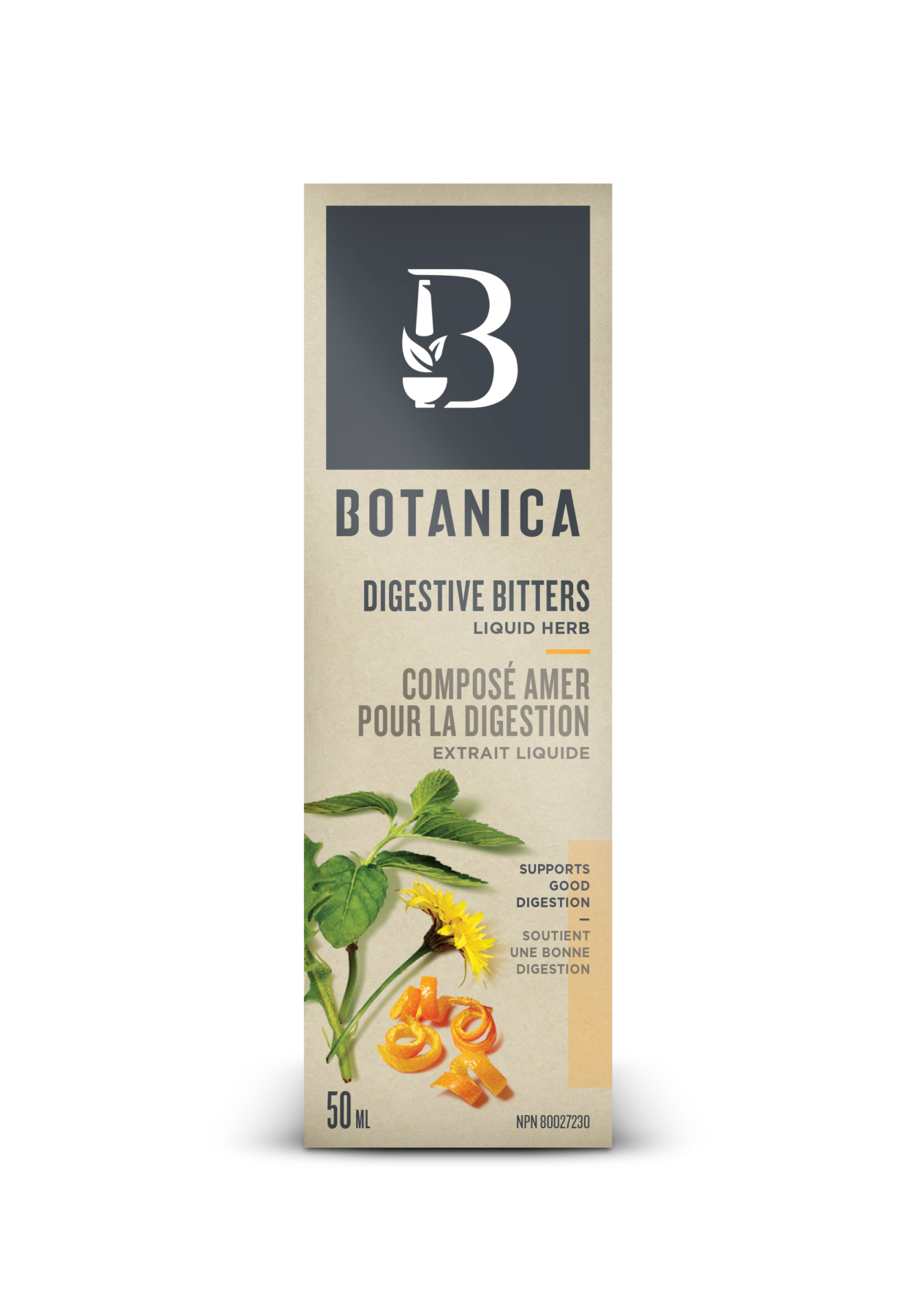Your liver is a very quiet organ, it rarely makes a fuss. If your skin or your digestive system is upset, you’ll be sure to know about it! But your liver can take a ton of stress and strain before it makes even the quietest request for help.
Behind the scenes, your liver is the workhorse of the body. It gathers up nutrients from the food you eat, sending them wherever they’re needed. It also cleans your blood, filters out toxins, and metabolizes excess hormones. These very important jobs are just a small example of the more than 300 different functions your liver handles quietly every single day.
So, when it starts to pipe up and complain, you’ve really got to perk up and listen!

Major liver issues have been on the rise for the last decade, and it looks like our current world and the way we live is a burden on our liver. Eating too much sugar, drinking alcohol daily, and the refined oils found in your favourite baked goods can put a huge strain on your liver.
The liver struggles when it’s overwhelmed with all of its jobs, like metabolizing alcohol or prescription drugs, or when it doesn’t have the right nutrients to function properly. It’s really important to listen to these quiet complaints from your liver so you can support it the moment it’s unhappy.
The Canadian Centre on Substance Use and Addiction is also concerned about your liver’s health and recently released updated guidelines. According to the new guidelines, it’s best to avoid drinking altogether if you’re under 25, pregnant, or have certain medical conditions. For everyone else they suggest that it’s best to drink two drinks per week or less to avoid any harm from alcohol. So, if you’re going to drink, remember to stick to these guidelines and drink responsibly!
Drinking aside, a common liver issue to keep an eye out for is non-alcoholic fatty liver disease (NAFLD). It’s a liver condition where fat builds up in liver cells. It’s not caused by drinking too much alcohol, but rather by metabolic disorders like obesity, insulin resistance, and type 2 diabetes. NAFLD is becoming increasingly common worldwide, affecting about a quarter of the global population.
So, are you wondering about the state of your liver?
Here are 4 signs your liver could use some extra support:

1. Sluggish digestion
The liver makes bile, which is an important digestive aid. It helps to emulsify the fat in your diet so it’s easier to digest. Your liver also uses bile as a transport system for fat-soluble toxins to move into the digestive system for elimination.
If your liver isn’t producing enough bile or if your gallbladder is congested and isn’t squeezing out bile properly, your digestion can get really sluggish. This can cause constipation, acid reflux, and greasy-looking poops.
2. Skin outbreaks or inflammation
When your liver is struggling with its role as a detoxifier, it can use your skin (your body’s largest organ) as a detox pathway. This can lead to lots of breakouts and itchy, red skin.
3. Low energy and recurring headaches
If your liver can’t do all of its jobs properly, then toxins can build up in your bloodstream. This can lead to tiredness, brain fog, and headaches.
4. Irregular menstrual cycles
Your liver plays an important role in your hormone balance. It keeps an eye on your bloodstream and grabs used hormones and metabolizes them (gets them out of your system). But, if your liver is overwhelmed or struggling, it might not catch all of the hormones it’d like to.
This can lead to menstrual problems, like PMS symptoms and irregular cycles. This is usually due to excess estrogen hanging out in your body longer than it should.
How to support your liver
To deal with the stress and strain of our current way of life, your liver needs a few specific food and nutrients to help keep it happy and balanced. Add these into your daily or weekly routine to give your liver the nutrients it needs.

Add some cruciferous veggies (broccoli, cauliflower, cabbage)
This family of veggies is chockful of two important liver nutrients – sulfur and indole-3-carbinol (I3C). These nutrients help support your liver’s detoxification enzymes and help protect it from damage. At the moment, the research behind these compounds has been done only on animals, but it’s quite promising.
Enjoy 3 – 5 servings of these delicious vegetables each week. My favourite way to support my liver is with roasted cauliflower coated with turmeric, salt, and pepper.
Milk thistle for liver support
If your liver needs some extra special support, consider adding a milk thistle supplement to your daily regime. It’s high in antioxidant compounds, including silymarin.
Silymarin has been traditionally used to support the liver and help to keep toxins from binding to liver cells. Laboratory and clinical research have also found that milk thistle helps to support liver cell regeneration and increases an important detoxification antioxidant, glutathione. This powerful antioxidant helps to detoxify the body and metabolize those excess hormones.
Milk thistle can be taken as a tincture, capsule, or tea, depending on what’s easiest for you and is best for your body. Be patient with your milk thistle supplement, it works quietly inside your liver and can take 2 or 3 months before you begin to notice a difference.
Bitter-tasting food for your gallbladder & liver
Your gallbladder works in harmony with your liver and it works best when you include bitter-tasting food into your meal, like bitter greens, artichoke, and broccoli rabe. The taste of bitter on your tongue primes your gallbladder to get ready for the meal that’s coming. This can help speed up a sluggish digestive system and help move fat-soluble toxins out of your digestive system. Digestive Bitters are very helpful if your gallbladder could use a bit of extra support.
Blueberries and cranberries
Blueberries and cranberries are high in the antioxidant called anthocyanin. Anthocyanin is a powerful blue, red, and purple-coloured antioxidant that research is finding can support liver function and help to prevent liver damage, like Non-Alcoholic Fatty Liver Disease. These delicious berries are easy to add to a smoothie, oatmeal, or your favourite muffin recipe to reap the benefits.
Your liver is an amazing organ that’s quietly working away all day and all night to keep your body working properly. If you think your liver might be asking for a bit of extra attention, include some of these liver supportive foods and herbs do your daily routine. It’s an easy way to keep your whole body happy.
Article originally published on March 23, 2022.


